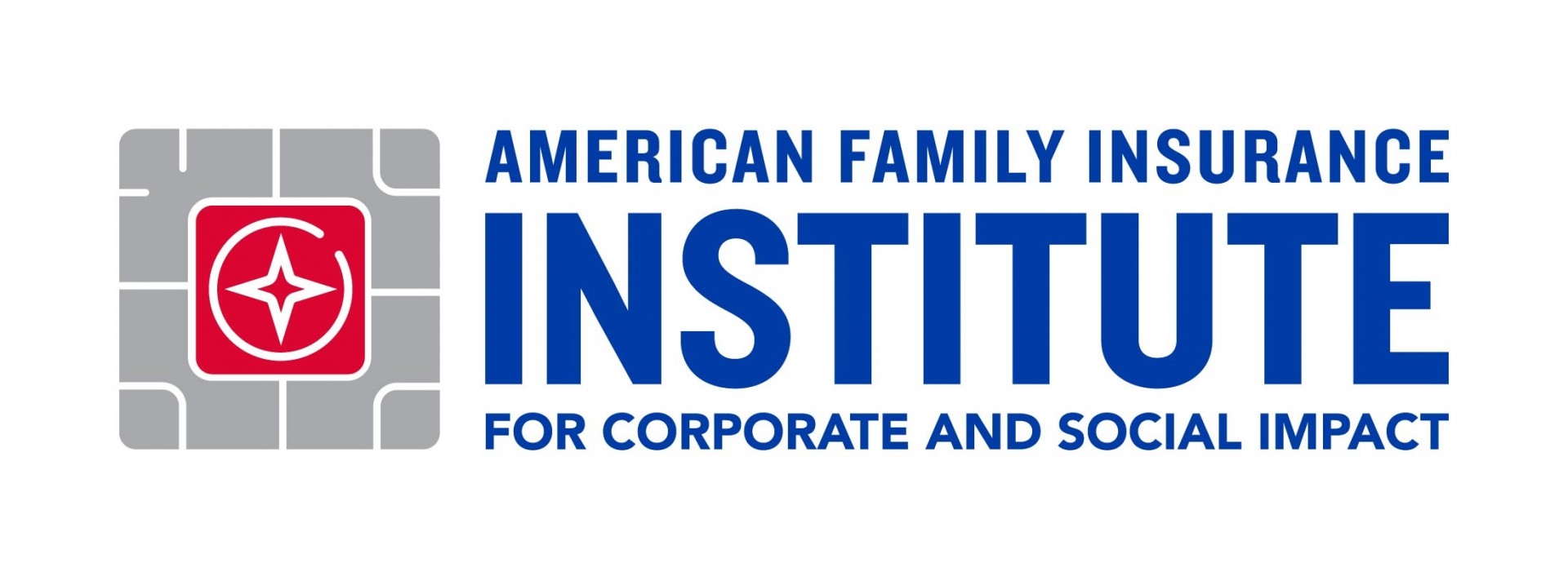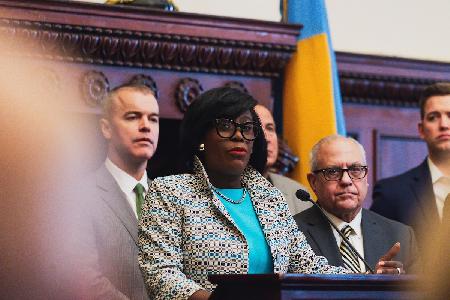
This article appears as part of This Week in Milwaukee Rising, a weekly newsletter from Technical.ly highlighting the innovators bringing a more just, equitable and dynamic Milwaukee economy. Subscribe here. The series is underwritten by American Family Insurance Institute for Corporate and Social Impact.
When Christopher Perceptions first heard rumblings about a digital currency revolution, he was quickly captivated.
As the budding Milwaukee-based entrepreneur pored over the now famous white paper published by the anonymous Satoshi Nakamoto introducing the world to a financial system built on the blockchain, he says two words jumped off the page: fair system.
“I fell in love with the concept of a fair system, because America’s system hasn’t been fair at all and history screams of that,” Perceptions told Technical.ly. “I saw that the [potential] of Bitcoin could be realized in my lifetime. It made a lot of sense to me. But there needed to be a frictionless on- and off-ramp to education.”
That was in 2016. Back then, Bitcoin was largely perceived as an underground currency riding on the whims of tech enthusiasts and seemingly out of reach for the average American. That’s not the case today, Perceptions said, after digital wallets were effectively thrust into the mainstream consciousness via a floating QR code during the Super Bowl and are increasingly embraced by a growing class of everyday investors through crypto exchanges.
Still, online chatter or a buzzy commercial wasn’t a replacement for educating folks on how to seize Bitcoin’s possibilities. Like many entrepreneurs of color, Perceptions saw the blockchain as a vehicle for empowering underserved communities by disrupting centuries of systemic disadvantage. But he didn’t see many people that looked like him experimenting in the space.
Cryptocurrency, race, risk and opportunity
Last year, a study from Pew Research found that the majority of Americans have “heard” about cryptocurrencies, and reported that nearly 16% of people have personally invested in, traded, or otherwise used cryptocurrency to facilitate payments. For Black Americans, that number actually skews slightly higher at 18%.
Wealth disparities persist making investing in crypto — an extremely volatile investment — riskier up front, especially because of its decentralized nature. (At the time of this writing, one Bitcoin, for example, is worth around $38,000. In November it was worth more than $67,000.)
But its fans say it also signals that marginalized populations may have the greatest to gain — and may even contribute to breaking the chains of generational poverty. According to the Institute for Policy Studies, Black and Latinx households are at risk of nearing zero wealth by 2053, based on dwindling median household incomes resulting from racial inequities. Technical.ly has previously spoken to crypto enthusiasts such as DC’s Angel Johnson — an investor associated with the Black-owned coin Guapcoin — who are aiming to bring more Black Americans into the fold for the sake of building generational wealth.
Perceptions believes opening the door to crypto could provide a key to economic stability. After growing up in a neighborhood tinged with violence, he said, “I wanted to be a unicorn and leave behind blueprints for doing better.”
“In my neighborhood, there was [access] to check-cashing places and liquor stores, and I just started to think, ‘There needs to be something that is easy,” said Perceptions, who is Black. “On the [blockchain] there isn’t race, there isn’t gender. There’s this freedom of opportunity.”
A startup as entry point
In 2020, Perceptions launched PerceptForm with the goals of serving as an entry point for emerging cryptocurrency investors. The fintech startup describes itself as an “end-to-end ecosystem focused on empowering communities through the Stacks blockchain.” The company’s crypto products and services are split into four verticals: finance, education, art and real estate.
“We wanted to look at what verticals people interact with on a daily basis,” he said. “That’s where PerceptForm wanted to become a bridge to this world. How can we get people from this 2.0 world to Web3 [a decentralized web]? Within our ecosystem, we can help people get in early and point people to that double bottom line.”
Perceptions said he also wants to help marginalized communities shed the misconception that they “have to take out a loan or go all-in on Bitcoin” to experience cryptocurrency’s economic advantages.
The ultimate vision is to make crypto real for people.
In addition to building its online learning platform, the company offers consultancy services to artists and other creatives exploring the benefits of nonfungible tokens, including Milwaukee-based artist Reginald Baylor ahead of his first NFT drop.
PerceptForm has also launched a marketplace that enables users to accept Bitcoin as a form of payment. In a deal brokered between Unbanked and the Stacks Foundation, PerceptForm played a role in creating the Stacks debit card, which is expected to roll out later this year, Perceptions said.
Now, the entrepreneur hopes to brick blockchain technology to community real estate through tokenization, a process similar to crowdfunding and growing in popularity since Miami successfully raised more than $13 million (amid a crash) after it began accepting cryptocurrency contributions
Since launching PerceptForm, Perceptions has participated in “Project Pitch It” on WISN-TV Channel 12 and received investor backing from actor, author, and cofounder of The Black Wall Street app, Hill Harper. The startup also participated in last summer’s Milky Way Tech Hub accelerator, and a CrunchBase profile shows it’s received at least $35,000 in total funding.
“The ultimate vision is to make crypto real for people,” Perceptions said. “I’m looking for the legacy impact phase of crypto. Our focus is on those people who can truly gain during this time or even lift them out of poverty. For me, what we’re doing has to impact the community.”
Subscribe to This Week in Milwaukee Rising:
Join the conversation!
Find news, events, jobs and people who share your interests on Technical.ly's open community Slack

Philly’s IT department fires long-tenured staff amid a high-level shakeup of priorities

RealLIST Connectors 2024: Meet 20 leaders spreading innovation throughout Pittsburgh

This Black gaming advocate has a mission to transform education through esports


